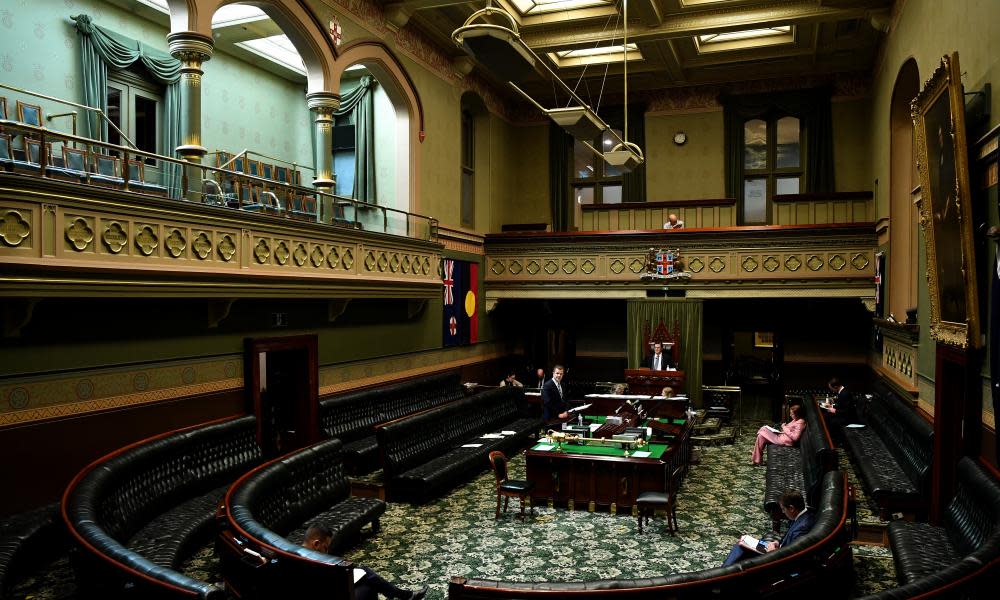State parliaments passed 547 new Covid-related measures with less than usual oversight

State parliaments enacted 547 new Covid-related measures during a period of significantly reduced scrutiny and oversight, new analysis shows.
A briefing paper released on Thursday by Tasmanian independent state MP Meg Webb examines the cuts to sitting across state and territory parliaments during the pandemic.
It finds that all state parliaments save Western Australia and Queensland reduced sitting days, but continued to pass hundreds of new rules and regulations related to Covid-19.
The analysis shows that state parliaments have passed 546 legislative instruments since mid-March, an average of 12.5 legislative instruments per sitting day.
“In healthy democracies, parliamentary scrutiny serves the public interest and should not be set aside by the government of the day,” Webb said. “While they may not enjoy it, a government that seeks to avoid scrutiny inevitably looks like it has something to hide.
“At both the national and state level, we’ve already seen the beneficial pressure of scrutiny triggering timely review of emergency decisions and policy made on the run, bringing to light unintended consequences and gaps.”
In an attempt to address the deficit of democratic oversight and scrutiny, most states set up special oversight committees to inquire into Covid-19 responses.
Related: Calls to end ‘undemocratic ’ adjournment of parliament
In Tasmania, the state government has both reduced its sitting period and decided against setting up a special oversight committee to scrutinise its Covid-19 response, though the premier says the normal public accounts and subordinate legislation committees are still operating.
In most jurisdictions, both in Australia and abroad, sitting has been complicated by travel restrictions and social distancing requirements. But the Centre for Public Integrity, a not-for-profit, says the hybrid models employed in the United Kingdom show sitting can continue largely uninterrupted.
Such a model relies on a combination of in-person and video attendance by MPs.
Earlier this month, a group of 10 former judges, leading lawyers, integrity experts, and public servants wrote to Scott Morrison calling for the full resumption of the federal parliament. They said the lack of accountability and scrutiny was “undemocratic and unprecedented”.
“Normal parliamentary sittings have been adjourned until August. Individual ministers have been given the power to allocate multibillion dollar discretionary funds and write the rules for major policy response programs,” the letter said.
“This is an undemocratic and unprecedented response to the Covid-19 outbreak. Parliamentary democracies around the world are continuing to meet, including through virtual means in the UK and Brazil.”
The letter was sent to Morrison by former high court justice Mary Gaudron, former federal court justice Michael Barker, and former department of prime minister and cabinet secretary Michael Keating, as well as former judges Tony Fitzgerald, David Ipp, Anthony Whealy, Stephen Charles, and Paul Stein. At the time, parliament was to resume for three days in May but was otherwise adjourned until August.
The federal parliament has since decided it will return for sittings across two weeks from June 10.
Australia has also established a new Senate select committee to examine the government’s broader Australian response to Covid-19.
That committee has already scrutinised the government’s Covid-19 phone app, the Ruby Princess debacle, the jobseeker and jobkeeper programs, and other elements of the government’s response.

 Yahoo News
Yahoo News 
